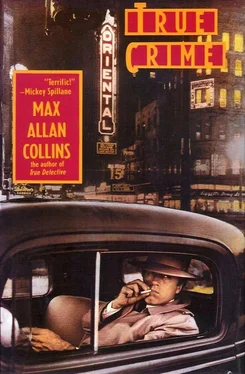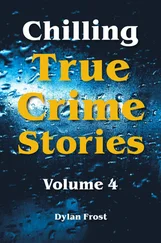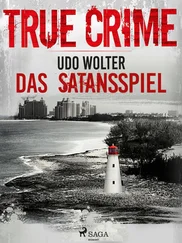“You know,” he said, blowing smoke out easily, sun low in the sky and streaming through the cornfields as we whisked by, “Candy Walker was a fuckin’ chump to let that drunken sawbones near ’im in the first place.”
“Really?” I said. I took one hand off the wheel and pushed the window-glass wire-frames up on my nose.
“Sure. When you get back, get a load of Freddie Barker’s fingertips. The doc did a scraping on them last spring. You know how this genius surgeon goes about that?” He grinned, cigar atilt, gesturing with both hands, relishing the gore he was about to describe. “He loops rubber bands around their fingers, at the first joint. Then he sticks a hypo of morphine in each fingertip — how’s that for laughs? Then starts scraping. With a scalpel, like he’s sharpening a pencil.” Nelson laughed, a high-pitched giggle like a kid. “Really carves the ol’ meat off. Ha ha ha!”
“Did the operation take?”
Nelson smirked, the wispy beginnings of his mustache riffling in the breeze like fringe on a curtain. “A couple of Freddie’s fingers got infected — one thumb swelled up like a blimp. They took him to a vet and got ’im some medicine, but he was burning up with fever for about a week.”
“But did the operation take?”
Nelson laughed again, same high-pitched giggle, blew out cigar smoke in a fat circle. “Take a look at his fingertips when we get back. You’ll see.”
I knew what I’d see. I’d never seen a fingerprint job that had taken; in every case I knew of, the telltale whorls stubbornly returned, forming patterns still discernible, if streaked with scar tissue.
“He’s got a big mouth, too, the doc. Comes in town and boozes and chases the local gash. Of course he knows better than to even look at one of our women.” He gave me a sideways glance that let me know that was a warning partially directed at me. “But Verle and Mildred got a nice thing going, usin’ the farmhouse as a cooling-off joint and all, so we got to be careful around the locals. Don’t need no drunken sawbones spillin’ his guts to every hunk of quiff he meets.”
“Why do the Barkers put up with him?”
The wind blowing as we sped along put Nelson’s cigar out; he relit it, shrugging. “Like the old bastard himself said, he’s useful. He did do some face-lifts that turned out, well... okay. Like on O.C.”
“O.C.?”
“Old Creepy. Karpis. Oh, yeah, you ain’t met him yet. He went to town with Mildred and her boys. Dolores is his broad. Hell of a guy. He’s from Chicago, too, from the back o’ the yards, like me. Hell, you’re from Chicago. Maybe you met him?”
“I only been in Chicago a year or so.”
“Oh yeah — you’re from out East.”
Was he trying to be cute, fishing like that? Or just making conversation? Maybe Nelson was more complex — and more intelligent — than I’d first given him credit for.
I said, “So Moran gave Karpis a face-lift?”
“Yeah — a pretty good one. O.C. didn’t have no earlobes, and that’s the kind of thing that sticks out on a wanted circular. And Moran did manage to fix him up with something that’s more or less like lobes. And O.C. had a busted nose since he was a kid and Moran straightened that. And tightened his face up. But his face is real scarred along his cheek by his ear. Both cheeks, I mean.”
“But it served its purpose, the face-lift.”
Nelson shrugged again. “I guess. I think O.C.’s changed his looks more from combing his hair straight back and wearing glasses than from what Moran done, but he seems satisfied. Enough that Walker wanted a face-lift, too. Big sacrifice for a ladies’ man like Walker to let that doc carve on his puss.” He laughed again, one short guttural laugh, but still high-pitched. “Well, he’s a ladies’ man in hell, now.”
We were coming up on Beaver Falls, now. Maple trees and two-story clapboards.
“I still don’t get it,” I said. “Why does Moran act like he’s so invaluable? There’s plenty of underworld docs around, doing first-rate face-lifts.” I took a hand off the wheel to gesture alongside my right ear. “See any scars on my face?”
“No,” Nelson admitted. “But Moran’s been valuable to the Barkers and Karpis in a lot of ways. I shouldn’t have to tell you he’s connected to the Chicago Boys, which can come in handy. And other ways.”
“Such as?”
Another shrug, another cocky puff of the cigar. “He was fencing hot money for ’em. He handled the Bremer ransom.”
“I thought that was Boss McLaughlin’s piece of work.”
“Him and Moran.”
“But the feds got McLaughlin, didn’t they?”
Like that other hot-money fence, James Probasco, ward-heeler McLaughlin had been hung by his heels from the Banker’s Building by the feds, seeking a third-degree confession; he hadn’t talked, but he was facing five years in Leavenworth anyway. He was still better off than Probasco, who as you may recall when similarly dangled did a dive into the cement court of the Rookery Building nineteen stories below.
Nelson continued. “The feds got McLaughlin, yeah — but he didn’t talk. And Moran still has fencing connections. Plus, like he’s always remindin’ us — he knows where the bodies are buried.”
“I see.”
“Pull in there,” Nelson said, motioning to a parking place in front of a store called Hubbell’s.
We left the Auburn at the curb and Nelson, his coat buttoned over his waistband, where the .45 was tucked, smiled and tipped his hat at a fat farm housewife with a faded brownish-blond marcel and a pretty little girl with corn-yellow hair in tow. The fat farm housewife and the little girl both smiled and the housewife said, “You’re Verle’s relation, aren’t you?”
“Yes ma’am.”
“We could all use some rain for the corn.”
“We surely could, ma’am.”
The mother and daughter walked on by, and we went into Hubbell’s, whose store window was a display of fishing rods, and the narrow, yellow-painted interior proved to be a hardware store of sorts in front — hammers and nails, fishing rods, a wall display of jackknives — and a bar in back, with three side booths.
“This is where Verle picks up his messages,” Nelson said, sotto voce, behind a hand.
“Interesting place.”
Nelson smirked. “Half hardware store, half bar. Ever seen the like?”
“Nothing better, if you’re in the mood for a claw hammer and a shot of whiskey.”
Moran was down at the far end of the bar, bending over a bottle of bourbon and a tall glass, giving what was left of his attention, after the bourbon got done with it, to a busty corn-fed barmaid of twenty-five or so with short curly strawberry-blond hair, wearing a white apron over a red-and-white checked house-dress, looking very homey, wiping the bar with a rag while she smiled and listened to Moran’s smoothest line of bull. He was selling her a shopworn matinee-idol smile, gesturing with the hand that wasn’t wrapped around the tall glass. If this was a movie, John Barrymore would play him and Joan Blondell her.
A man of about fifty was working the counter in the front, hardware half of the store; he had thinning blond hair and a shovel jaw and a disgusted look.
“Can’t you keep your friend away from my daughter?” he asked Nelson.
Nelson said, “Sorry, Kurt. You shouldn’t oughta let her tend bar, if you don’t want her meetin’ men.”
With tight anger, Kurt said, “Just because she’s divorced don’t mean she’s loose.”
“Did I say that? Anything for Verle?”
“Nothin’.”
“Can I use the phone?”
Still disgusted, Kurt nodded, and Nelson went behind the counter; he nodded to me, then toward Moran. I got the picture.
Читать дальше












